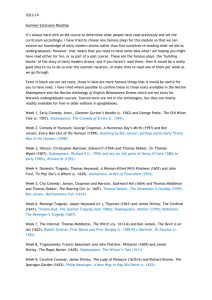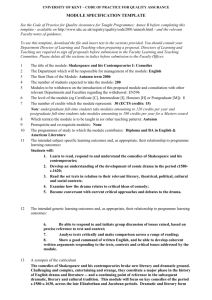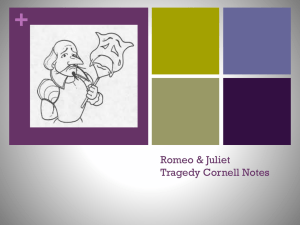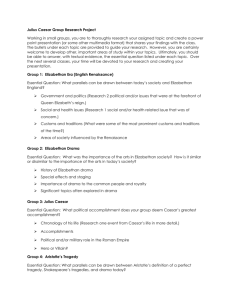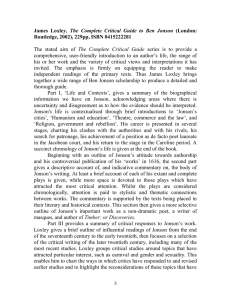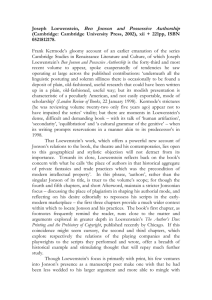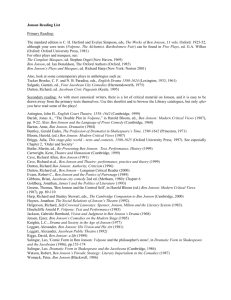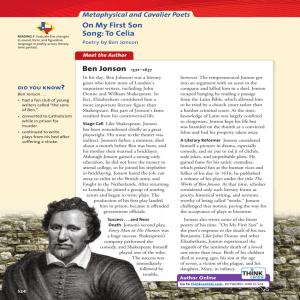Summer Extension Reading It`s always hard with an MA course to
advertisement
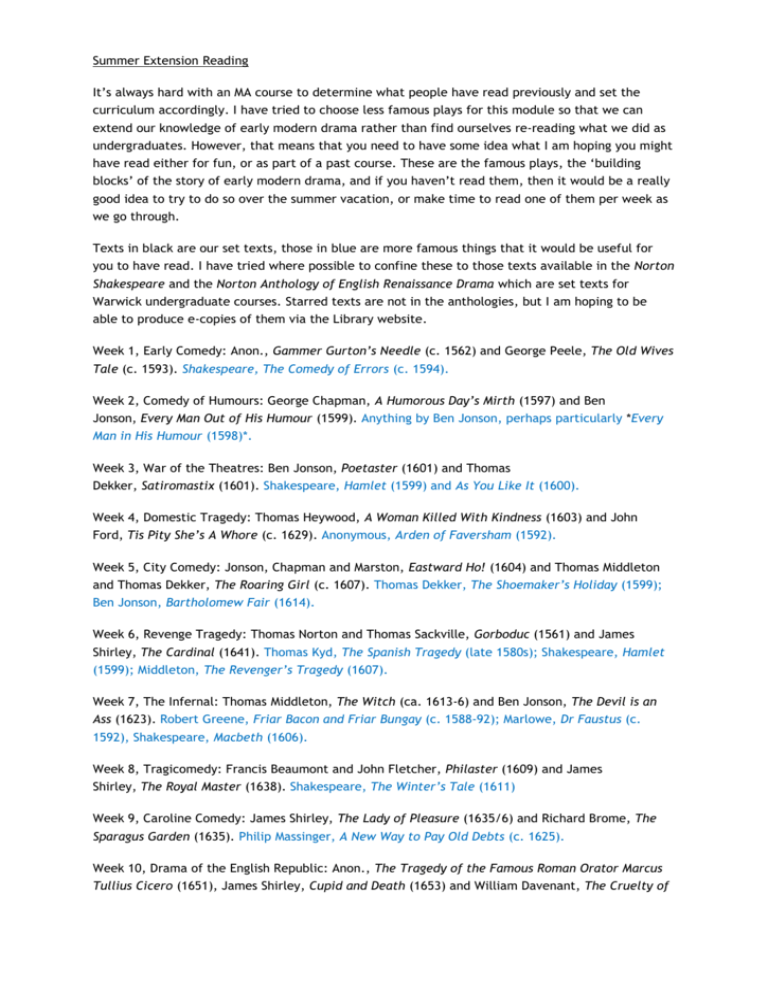
Summer Extension Reading It’s always hard with an MA course to determine what people have read previously and set the curriculum accordingly. I have tried to choose less famous plays for this module so that we can extend our knowledge of early modern drama rather than find ourselves re-reading what we did as undergraduates. However, that means that you need to have some idea what I am hoping you might have read either for fun, or as part of a past course. These are the famous plays, the ‘building blocks’ of the story of early modern drama, and if you haven’t read them, then it would be a really good idea to try to do so over the summer vacation, or make time to read one of them per week as we go through. Texts in black are our set texts, those in blue are more famous things that it would be useful for you to have read. I have tried where possible to confine these to those texts available in the Norton Shakespeare and the Norton Anthology of English Renaissance Drama which are set texts for Warwick undergraduate courses. Starred texts are not in the anthologies, but I am hoping to be able to produce e-copies of them via the Library website. Week 1, Early Comedy: Anon., Gammer Gurton’s Needle (c. 1562) and George Peele, The Old Wives Tale (c. 1593). Shakespeare, The Comedy of Errors (c. 1594). Week 2, Comedy of Humours: George Chapman, A Humorous Day’s Mirth (1597) and Ben Jonson, Every Man Out of His Humour (1599). Anything by Ben Jonson, perhaps particularly *Every Man in His Humour (1598)*. Week 3, War of the Theatres: Ben Jonson, Poetaster (1601) and Thomas Dekker, Satiromastix (1601). Shakespeare, Hamlet (1599) and As You Like It (1600). Week 4, Domestic Tragedy: Thomas Heywood, A Woman Killed With Kindness (1603) and John Ford, Tis Pity She’s A Whore (c. 1629). Anonymous, Arden of Faversham (1592). Week 5, City Comedy: Jonson, Chapman and Marston, Eastward Ho! (1604) and Thomas Middleton and Thomas Dekker, The Roaring Girl (c. 1607). Thomas Dekker, The Shoemaker’s Holiday (1599); Ben Jonson, Bartholomew Fair (1614). Week 6, Revenge Tragedy: Thomas Norton and Thomas Sackville, Gorboduc (1561) and James Shirley, The Cardinal (1641). Thomas Kyd, The Spanish Tragedy (late 1580s); Shakespeare, Hamlet (1599); Middleton, The Revenger’s Tragedy (1607). Week 7, The Infernal: Thomas Middleton, The Witch (ca. 1613-6) and Ben Jonson, The Devil is an Ass (1623). Robert Greene, Friar Bacon and Friar Bungay (c. 1588-92); Marlowe, Dr Faustus (c. 1592), Shakespeare, Macbeth (1606). Week 8, Tragicomedy: Francis Beaumont and John Fletcher, Philaster (1609) and James Shirley, The Royal Master (1638). Shakespeare, The Winter’s Tale (1611) Week 9, Caroline Comedy: James Shirley, The Lady of Pleasure (1635/6) and Richard Brome, The Sparagus Garden (1635). Philip Massinger, A New Way to Pay Old Debts (c. 1625). Week 10, Drama of the English Republic: Anon., The Tragedy of the Famous Roman Orator Marcus Tullius Cicero (1651), James Shirley, Cupid and Death (1653) and William Davenant, The Cruelty of the Spaniards in Peru (1658) in Janet Clare (ed.) The Drama of the English Republic 164960 (Manchester UP, 2002). *Ben Jonson, The Masque of Blackness (1605) and The Masque of Queens (1609)*.
